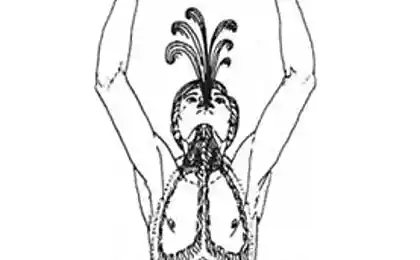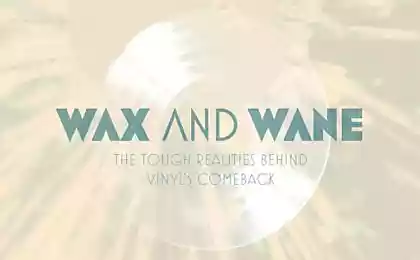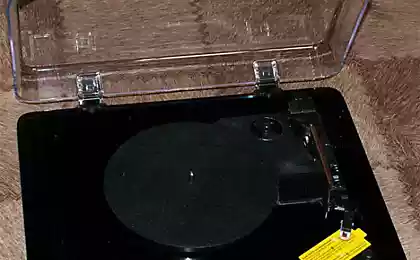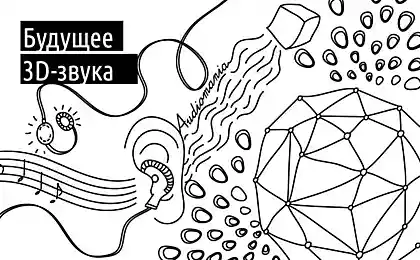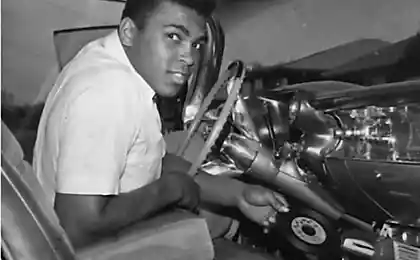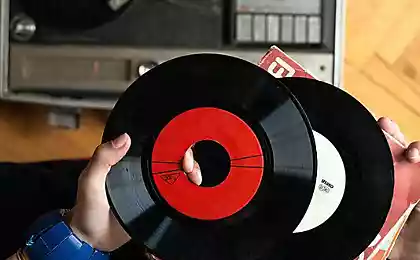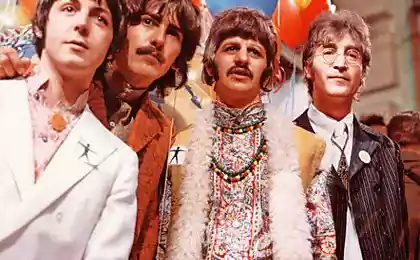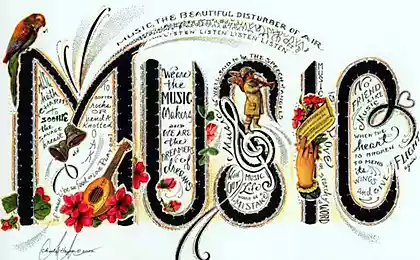1149
Find and save: how to save the music, buying up all the vinyl world
The former owner of a music store in Pittsburgh Moin Paul (Paul Mawhinney) has spent 40 years of his life to ensure that assemble a collection of millions of records. Entries on the set of them never transferred to digital media, so in case of loss of the plate would have simply disappeared from history.
According collector, to avoid such a situation, it was possible only in the case if there was someone who would be willing to buy his collection and keep it. Moin was looking for a buyer for almost twenty years. Once he was close to a deal - in the late 90's online retailer CDNow agreed to buy the collection for $ 28, 5 million, but the purchase did not take place because the company suffered during the dotcom crash.
Moin then tried to negotiate with the Library of Congress, but further talks things have not gone. In 2008 the collection was exhibited at the auction site eBay, but the successful bidder who offered about $ 3 million later said that his account was hacked, and refused to pay.
A year ago, a friend of the collector showed him advertising in the magazine Billboard, which said:
We buy records all musical genres. Pay the highest price. I>
Next fall before Moin warehouse in Pittsburgh appeared eight empty 16-foot polutreylerov who have taken out the entire collection. Mouinni says he has never met with the buyer. The only thing he knows is that the plates went to Brazil.
A similar story happened in Los Angeles. There's a famous collector and store owner Music Man Murray Gershents died at the age of 91, but also had to sell his collection to an anonymous buyer. Before that, a collector for many years tried to make a deal, and was desperate to do it. However, as later told reporters his son, suddenly appeared a buyer who without much ado laid a sufficient amount of money. Bought plates also were shipped to Brazil.
A similar fate befell the collections of several iconic music stores, including the Colony Records, which '64 graced Times Square in New York City. The store closed in 2012, and all 200 thousand plates were bought by a single collector. The purpose of this person is to buy up all the records of the world.
The dream of childhood h4> 62-year-old businessman Freitas Zero (Zero Freitas) is very successful - only the office of his company occupies more than 7, 5 thousand square meters. The entrepreneur says that since childhood collecting plate and can not stop. By the end of school Freitas collection numbered 3000 records.
After studying music in college, he took up the family business - private bus companies operating in the suburbs of Sao Paulo. Ten years later the business went so well that the company has been expanded, and the Freitas became richer. Soon after, he divorced his wife, and a passion for collecting emerged with new force - the businessman said that perhaps the reason for this is loneliness. Now he owns a million records.
Later Freitas hired a dozen students to catalog and organize your collection. Young people are an information plate (group, album, release year and music label) and their previous owners in the database. They can not cope - people unable to process up to 500 plates per day, but the businessman buys all new vinyl records from other collectors.
Only last November at its warehouse came more than a dozen containers of 100 thousand records each. Originally intended for the storage of the second business Freitas - a technology company engaged in the installation of lighting and sound equipment for rock concerts - but vinyl long defeated searchlights and loudspeakers.
Freitas works on a network of "scouts" who are engaged in search of suitable vinyl collections worldwide. According to rough estimates, the fact that catalog all records Freitas, you will need at least twenty years. If he would stop buying new.
To find more entries in your personal home collection, Freitas uses various objects - music from the works of Disney cards labeled "Star Wars", and bottles of Heineken beer marked records football related. I>
What is the meaning h4> Freitas always avoided publicity, and acting on behalf of the scouts created for transactions of virtual buyers - with the purchase of a large collection in Rio de Janeiro was invented by a Japanese collector. In that plate went overseas, believed even local journalists.
One scout Allan Bastos Freitas introduced him to the music researcher Bob George, who was impressed with the size of the collection of businessman. Bother him only one question:
And what's the point of owning a collection, if this music nobody listens to? I>
Freitas thought, he did not have an answer to this question. Collecting became his passion, but have long since lost the specific purpose - he just bought a new plate. An example for him was George himself, who in 1985 gave to his collection of 47,000 records access for everyone, open the archives of contemporary music.
Filmmakers, musicians and other creative people often need rare recordings, and in such cases there is nothing better than these private archives. In 2009, George entered into a partnership with Columbia University, and his archive is widely known - it is supported by money and, in fact, the new plates, many famous musicians, actors and directors. Among them, for example, The Rolling Stones guitarist Keith Richards, who finances the archive of the old blues records, as well as David Bowie, Paul Simon, Neil Rogers, Martin Scorsese and Jonathan Demme.
Freitas has conceived a similar venture called Emporium Musical. With this non-profit organization people can gain access to unique entries, many of which do not exist on digital media - in England and the United States most of the music is digitized, but the rest of the world, estimated Bastos, up to 80% of the music from the middle of the 20th century never digitization.
Thus, the task of collection Freitas is to save the music. Businessman negotiating and buying and digitizing the largest collection of Brazilian music of the early twentieth century, in addition, it plans to digitize some rarities from his collection.
In addition, he wants to create a special repository where vinyl records can "live" for many years. In his opinion, vinyl is the most reliable custodian - if stored in an upright position of the plate, in a sheltered spot, where the ideal temperature is maintained, the life of the plate is practically unlimited.
Another important task of the collector - to get rid of duplicate records that he bought, not realizing that already owns this record.
Unreal collector h4> Freitas himself is sometimes inconvenient for himself - he says that the real collector seeks to possess the records of a particular genre, or group time. Brazilian businessman hates sort your collection.
For him, buying each plate - a personal story. For example, in his house (not in stock) stored carefully selected records. Among them are those that previously belonged to the Brazilian music critic and DJ Paolo Santos (Paulo Santos). This man lived in Washington in the 50s of the last century and was friends with some of the stars of classic jazz like Duke Ellington, Ella Fitzgerald and Leonard Bernstein. These musicians gave Santos its records by signing them.
«These messages are very personal," - says Freitas, barely breathing. I>
If you look at the collector at this point, we can see how he stares at the plate and holds on her fingers. His eyes redden and become wet - it happens from dust. But the record is absolutely clear.
P.S. Our fresh release Shaw Sound , in which we talk about vinyl, record players, records and discuss the myths associated with this theme.
P.P.S. And here Audiomanii own store where you can find plate , Players and additional themed accessories .
Source: habrahabr.ru/company/audiomania/blog/240695/
From the Ford T to 4G: a revolution in automotive technology
Week breakthroughs in fusion energy continues: dynomak reactor from the University of Washington
